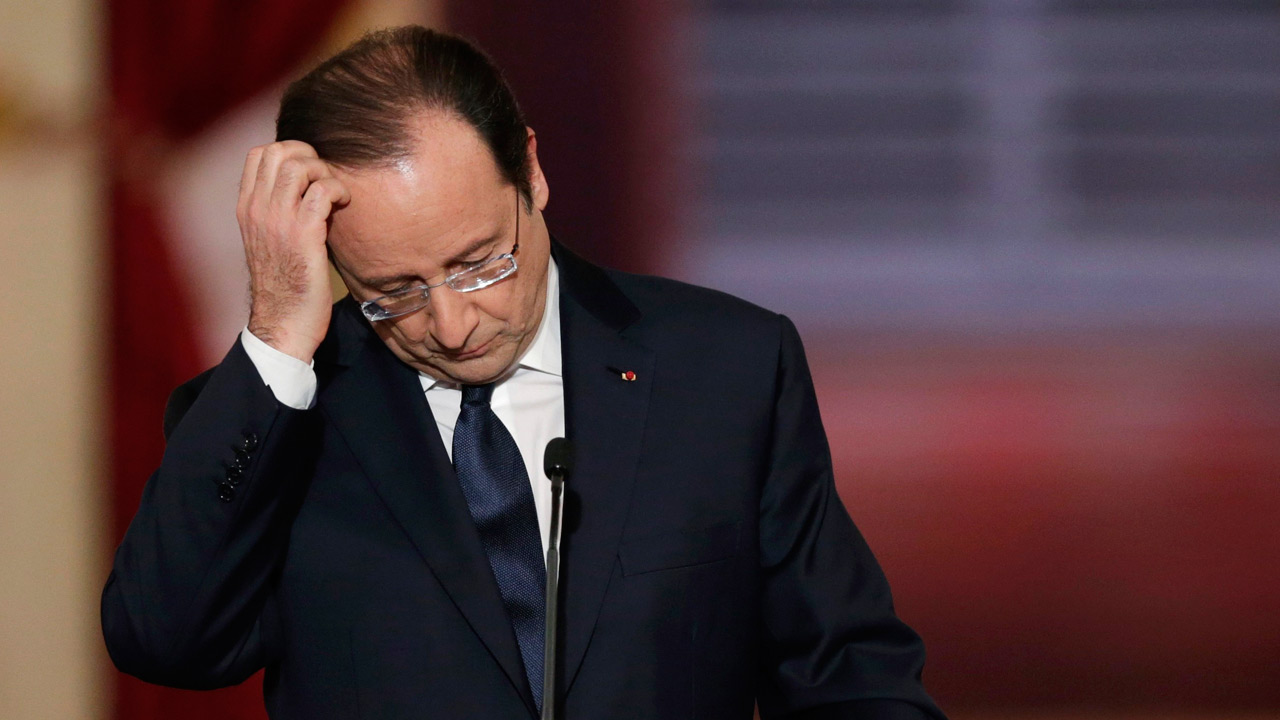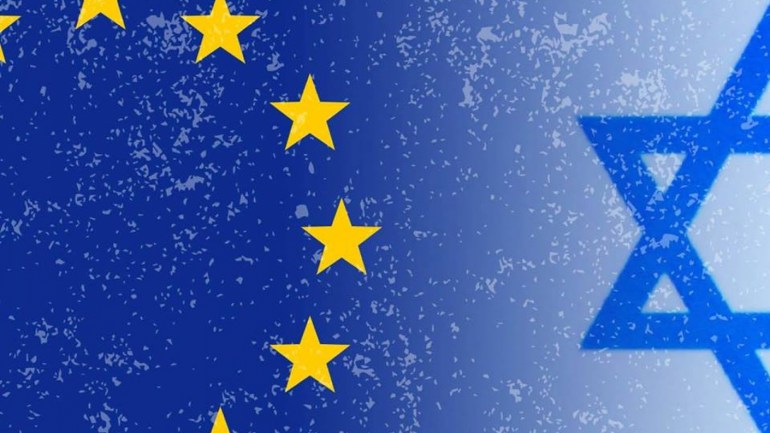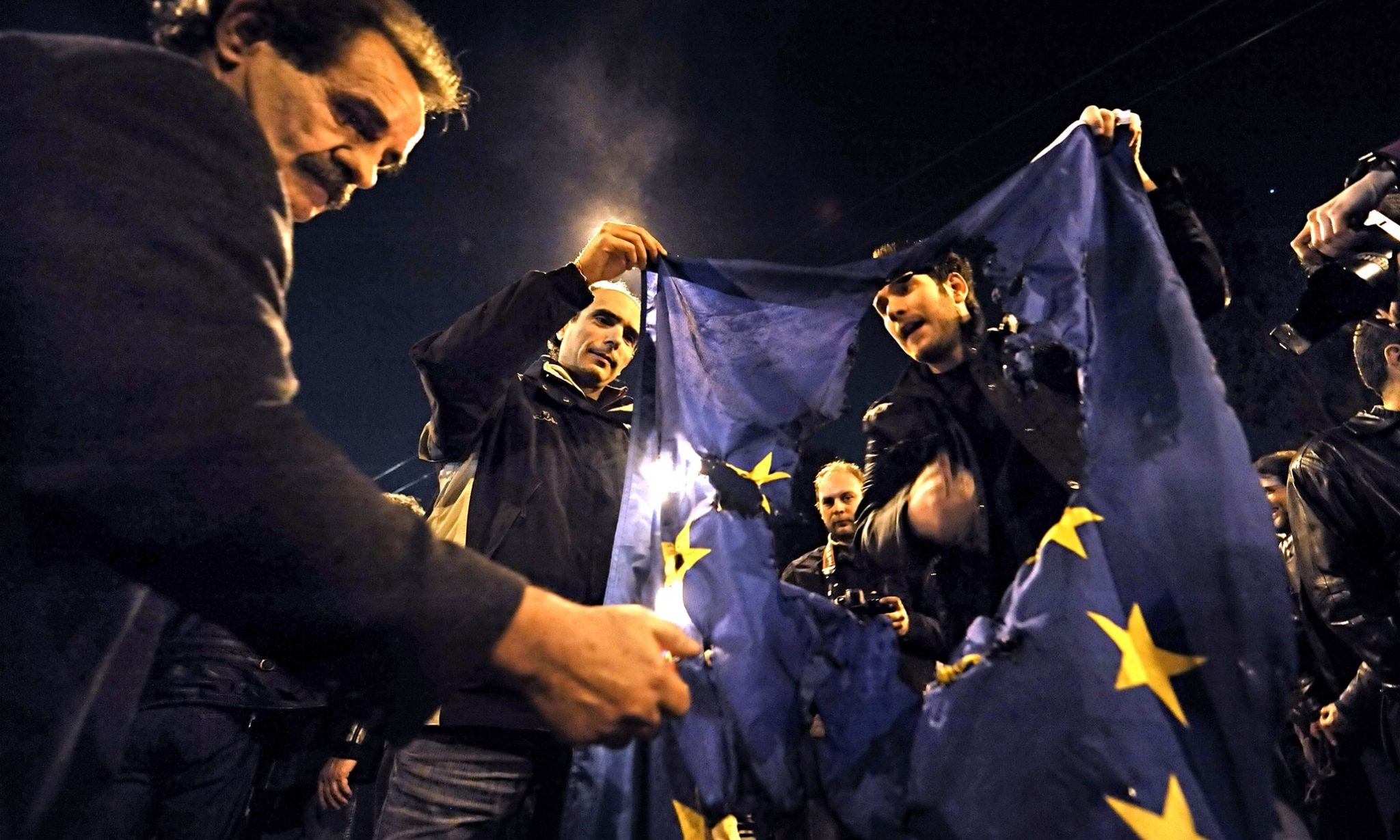
photo source: theguardian
It is beyond question that the Greek crisis has greatly damaged the notion of European solidarity and the credibility of the Euro. In the wake of the latest flurry of late night talks, brinkmanship and insults between Greece and its creditors, Hollande is advocating radical changes to governance of the Eurozone, which he hopes will prevent another Eurozone crisis.
The President of France has argued in a letter to Journal de dimanche that the Eurozone must become political integrated to improve stability, growth and democratic accountability. This will require drastic changes to the structure of the European Union. Whatever long term benefits his reforms may bring, ultimately short term challenges will prevent them from being implemented.
This is because what Hollande is advocating will require treaty change, treaty change in the past has often caused the most division within the Union, as a result of this leaders are loathe to discuss treaty change unless there is no other alternative. Not only that, non Eurozone member states have aired concerns that they would become ‘second class’ EU member states in an EU which is being driven by the Eurozone. Moreover, with a British referendum fast approaching, for the French to be granted treaty change yet the British not, will serve to strengthen the Euro sceptic’s argument that the UK has no influence in the EU and is better of leaving.
However, the real death knell of his calls for reforms will be the simple fact that with such severe external and internal crises affecting the EU, there is neither the political will nor the political capital to radically change the structure of the EU. The inevitable struggle to implement the reforms will only weaken the already severely damaged notion of ‘unity of diversity’.
So what does Hollande actually want? The President of France wants the Eurozone to act as the new driving force of the European project. He believes that the creation of a Eurozone government with its own parliament, government and budget will enable to deal with future crises in a far more efficient, robust and most importantly democratic way.
“Government, a dedicated budget and a parliament to ensure democratic control”.
The European Union’s image as a democratic institution has been dealt a hammering blow in the wake of the Greek crisis. Both the far left, far right but worryingly more citizens and politicians in the mainstream believe that the European Union has shattered Greece’s sovereignty by ‘forcing’ more austerity when the Greek people voted ‘Oxi’.
Whilst Hollande’s proposals are an imaginative fix to prevent crises in the future, there are too many obstacles to overcome.
Chief amongst these is the challenges of amending the treaties. The EU’s history is marked by episodes where treaty changes have caused the most tension between the member states and laid bare the gulf between what the European elites and what the European people want from the European project. For many member states, EU treaty change must be subject to a referendum. The ‘perils’ of this can be shown as the Irish people rejected the Lisbon Treaty in 2008 (53% for No). Not only then was treaty change challenged by the populace, the French famously rejected the constitutional treaty of 2005 (55% for No). The point that must be stressed is that with rising Eurosceptism, political dissatisfaction and mistrust towards the ruling class, treaty change could unleash a Pandora’s Box. Moreover, with Hollande languishing in the polls he certainly does not have the popularity to persuade the French people to vote for treaty change.
But the problems do not end there for supporters of the ‘Eurozone government’. There shall also be resistance from the leaders of the EU member states, who are loathe to become second fiddle to a bloc run by France and Germany.
This quotation from the Swedish Finance Minister, Magdalena Andersoon summarises the concerns many have.
‘There is a risk that [further Eurozone integration] could lead to a weaker position in the EU and reduced influence over policy formulation for non-euro countries. Ultimately, this may also affect the design of the EU single market which is so important for Sweden.’
For many EU member states losing influence over the developing single market is tantamount to a surrender of national interest. This is unacceptable for non Eurozone EU member states.
So, Hollande’s plans will face resistance from recalcitrant European citizens and member states protecting their national interests. Yet a third challenge will arise, this is David Cameron’s renegotiation on the UK’s membership of the EU. Time and time again Mr Cameron has been told there shall be no treaty change for the UK. Whilst the Prime Minister and his allies have quietly accepted that, for the euro-sceptics this strengthens their case that the UK is friendless in the EU and the UK is better of leaving. Even if Hollande were to just secure an agreement that treaty change will be considered, the euro-sceptics case that the UK has no power within the EU will be strengthened. It is not in France’s interest for the UK to leave the EU, so Mr Hollande must be wary of not assisting the NO campaign.
It is clear to see the challenges facing Hollande’s proposals are daunting. Even with the three challenges of, the people, the elites and a truculent UK, one must remember the external crises afflicting the EU. With a resurgent Russia in the east, failed states in the MENA and thousands of refugees crossing the Mediterranean, the EU is under more strain than ever. Whilst Hollande’s proposals seeking to prevent another Greek crisis deserve examination and applause, the journey to implementing them will only increase divisions in an already divided Union. This is something the European Union must avoid.



